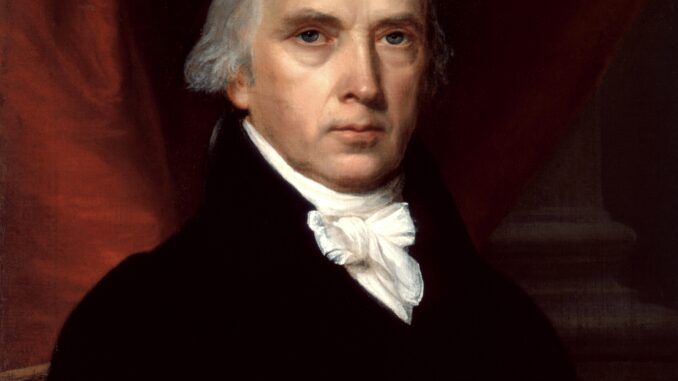
Among the numerous advantages promised by a well-constructed union, none deserves to be more accurately developed than its tendency to break and control the violence of faction.
The friend of popular governments, never finds himself so much alarmed for their character and fate, as when he contemplates their propensity to this dangerous vice. He will not fail therefore to set a due value on any plan which, without violating the principles to which he is attached, provides a proper cure for it.
The valuable improvements made by the American constitutions on the popular models, both ancient and modern, cannot certainly be too much admired; but it would be an unwarrantable partiality, to contend that they have as effectually obviated the danger on this side as was wished and expected.
Complaints are everywhere heard from our most considerate and virtuous citizens, equally the friends of public and private faith, and of public and personal liberty; that our governments are too unstable; that the public good is disregarded in the conflicts of rival parties; and that measures are too often decided, not according to the rules of justice, and the rights of the minor party; but by the superior force of an interested and over-bearing majority.
By a faction I understand a number of citizens, whether amounting to a majority or minority of the whole, who are united and actuated by some common impulse of passion, or of interest, adverse to the rights of other citizens, or to the permanent and aggregate interests of the community.
There are two methods of removing the causes of faction: The one by destroying the liberty which is essential to its existence; the other, by giving to every citizen the same opinions, the same passions, and the same interests.
Liberty is to faction, what air is to fire, an [element] without which it instantly expires. But it could not be a less folly to abolish liberty, which is essential to political life, because it nourishes faction, than it would be to wish the annihilation of air, which is essential to animal life because it imparts to fire its destructive agency.
It is in vain to say, that enlightened statesmen will be able to adjust these clashing interests, and render them all subservient to the public good. Enlightened statesmen will not always be at the helm: Nor, in many cases, can such an adjustment be made at all, without taking into view indirect and remote considerations, which will rarely prevail over the immediate interest which one party may find in disregarding the rights of another, or the good of the whole.
The inference to which we are brought, is, that the causes of faction cannot be removed; and that relief is only to be sought in the means of controlling its effects.
A republic, by which I mean a government in which the scheme of representation takes place, opens a different prospect, and promises the cure for which we are seeking.
The two great points of difference between a democracy and a republic, are first, the delegation of the government, in the latter, to a small number of citizens elected by the rest; secondly, the greater number of citizens, and greater sphere of country, over which the latter may be extended.
In the first place it is to be remarked, that however small the republic may be, the representatives must be raised to a certain number, in order to guard against the cabals of a few; and that however large it may be, they must be limited to a certain number, in order to guard against the confusion of a multitude.
In the next place, as each representative will be chosen by a greater number of citizens in the large than in the small republic, it will be more difficult for unworthy candidates to practice with success the vicious arts, by which elections are too often carried; and the suffrages of the people being more free, will be more likely to center on men who possess the most attractive merit, and the most diffusive and established characters.
It clearly appears, that the same advantage, which a republic has over a democracy, in controlling the effects of faction, is enjoyed by a large over a small republic—is enjoyed by the union over the states composing it.
The influence of factious leaders may kindle a flame within their particular states, but will be unable to spread a general conflagration through the other states.
In the extent and proper structure of the union, therefore, we behold a republican remedy for the diseases most incident to republican government. And according to the degree of pleasure and pride, we feel in being republicans, ought to be our zeal in cherishing the spirit, and supporting the character of federalists.
Publius [22 November] 1787 abridged version
